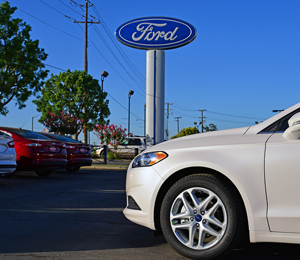 For many, our vehicles are our pride and joy. They get us where we need to go, usually quite comfortably. If you have kids involved in activities, they become like our second home.
For many, our vehicles are our pride and joy. They get us where we need to go, usually quite comfortably. If you have kids involved in activities, they become like our second home.
Unfortunately, some people owe more money on the car loan than the vehicle is actually worth. Are you one of them? If your vehicle was totaled in an accident or hail storm today, would your insurance company pay enough to cover the balance on your loan? If not, would you have the funds to pay that balance?
Joyce Schuett, a former agent and personal lines underwriter with West Bend, will discuss Auto Loan/Lease Coverage (GAP).
If the answers to both questions is no, you may want to consider Auto Loan/Lease Coverage, most commonly known in the auto dealership industry as "GAP coverage." Purchasing Auto Loan/Lease Coverage will ensure your insurance company fully pays off your loan balance if your vehicle is totaled so you can avoid financial distress.
Does everyone need Auto Loan/Lease Coverage? The answer is "no."
People in these situations are the ones who would benefit the most from purchasing Auto Loan/Lease Coverage:
- If you lease a vehicle. The leasing company usually makes you responsible for the value difference as part of your signed lease agreement.
- If you put less than 20% down on a vehicle. Almost immediately, you owe more than the vehicle’s depreciated value.
- If you finance for 60 months or more. The value of the vehicle will depreciate faster than it takes to pay off your loan.
- If you drive more than 15,000 miles a year. The mileage causes accelerated depreciation.
- If you’re financially stressed with limited savings to put toward an unexpected loan balance.
- If you roll negative equity from a previous vehicle. This immediately creates a loan balance higher than the new vehicle is worth. In this situation, you’re not eligible for Auto Loan/Lease Coverage so be sure to ask your insurance agent if a separate loan for that old balance may be more beneficial.
- If you buy a certain brand or model that has a history of accelerated depreciation. Do some research on how well the vehicle you want to purchase holds its value.
- If you choose to purchase this coverage, don’t make the biggest mistake of all: DON’T buy it at the dealership and build it into your loan. Insurance carriers charge a percentage of your Comprehensive and Collision premiums for that vehicle. These are usually less than the dealership's coverage. Most insurance carriers require that it be added to your auto insurance policy within 30 days of leasing or securing a loan on a vehicle.
So take this knowledge with you BEFORE you lease or buy your next new or used vehicle and talk to your knowledgeable insurance agent FIRST so you know your best cost and protection options.
Do you have any tips you’d like to share? I’d love to hear your thoughts; please share them in the box below.
This article is intended for general educational and illustrative purposes only and should not be construed to communicate legal or professional advice. Further, this article is not an offer to sell insurance. Please consult with your licensed insurance agent for specific coverage details and your insurance eligibility. All policies are subject to the terms, conditions, limitations, definitions, and exclusions contained therein.





